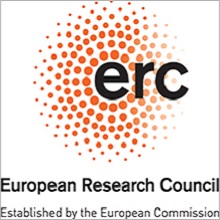

This project has received funding from the European Research Council (ERC) under the European Union’s Horizon 2020 research and innovation programme under grant agreement No 724544
Average-Transaction Costs and Risk Management during the First Globalization (Sixteenth-Eighteenth Centuries)
Project results
AveTransRisk investigated maritime risk management in late medieval and early modern Europe, the associated development of historical institutions and their impact on economic development, through the comparative investigation of a specific legal instrument – General Average (GA) – which still underpins maritime trade by redistributing damages’ costs across all interested parties. ‘Averages’ are a legal instrument used since Antiquity, and their mutual nature makes their study particularly topical today, as the current crisis of the Anglo-American model of capitalist economic development is fostering interest in different approaches and solutions.
The results of the project have confirmed and strengthened the original hypothesis about the deep roots of intra-European institutional diversity, providing further evidence of the developments of different paths of economic development across Europe, with important contemporary repercussions for both the understanding, and the future developments of European economy/ies. From the scientific perspective the results of the project have confirmed the long-term resilience of alternative credit and risk-management structures and institutions, whose study had been neglected as they are not in line with the standard and classic narrative of economic development, profoundly shaped by the Anglo-American experience.
Throughout the project lifespan there have been plenty of opportunities for engagement with civil society and non- academic partners. The most potentially interesting result of this has been to put Maria Fusaro (PI) in collaboration with colleagues working on using the principle of General Average mutual apportioning to devise new solutions that shall provide a more equitable taxation to counteract the planet climate emergency. This being the highest risk to human life, this collaboration has potential for impact truly on the planetary scale.
Notwithstanding substantial disruptions due to the COVID-19 pandemic and come serious personal and health issues which have befallen members of the team, research was completed along the lines originally envisaged, all PhDs have been completed and all junior members of the team have progressed to prestigious posts.
The Database is a resounding success amongst the project's outputs. Its success was recognised by its winning the prestigious Digital Innovation Prize at the 2022 World Economic History Congress. The Database has been defined as a game changer as it provides a level of granularity and precision of data, and a friendly user-interface which allows for further usage of its data by other projects. This was planned, but the splendid work collectively done by the team members directly involved in its design, production and delivery (Ian Wellaway, Luisa Piccinno, Marta Garcia Garralon, Gijs Dreijer, Antonio Iodice, Jake Dyble and Lewis Wade) has provided results well beyond my most optimistic expectations.
The issue of ‘translation’ not only between different languages but also between legal systems, was flagged already in the project proposal as another crucial element of our analysis, and was the topic of our second project workshop. The importance of this element has massively increased as the archival data was collected and analysed. For the first time, we systematically and comparatively analysed a legal instrument – Average – which has been central to maritime trade since Antiquity. Combining the comparative element, with the challenges of translations between both languages and legal systems, and with the complex polysemy of the term ‘average’ itself, has confronted us with a particularly heavy responsibility in careful and stringent internal peer reviewing of all outputs, as our publications have for all intent and purposes established a new field of investigation.
The project exceeded expectations in fulfilling its interdisciplinary engagement as detailed in the original project proposal. Most fruitful collaborations have been established with various research groups in Legal History, these led to the collaborative publication of an additional project output, an edited collection jointly with the team of Phillip Hellwege ERC-funded project CHILE (A Comparative History of Insurance Law in Europe, No. 647019). Additionally, an active collaboration has also been established with the team of Stefania Gialdroni ERC-funded project MICOLL (Migrating commercial law and language. Rethinking lex mercatoria (11th-17th century), N. 101002084), and one of AveTransRisk PhDs (Jake Dyble) is now a post-doc within that project.
Concerning Economic History and Economics, the Database has been a real success and has generated several collaborations for various project members. I am currently engaged in series of collaborations with other colleagues to enhance the Database and ensure its resilience.
All my hypotheses about the variety of the historical institutional development of Averages have been proven right, and the publications are evidence of this. However, I was positively surprised by the incredible flexibility of the historical usage of Averages, which I had underestimated. This was truly unexpected and provided the link with the contemporary strategy and policy issue connected with how to use the equitable principle of Averages to devise more equitable forms of carbon tax. In this way not only we have gone beyond the state of the art in regard to scientific research, but we can actively contribute to the biggest challenge of contemporary society: how to fight climate change effects in an inclusive and equitable manner.



